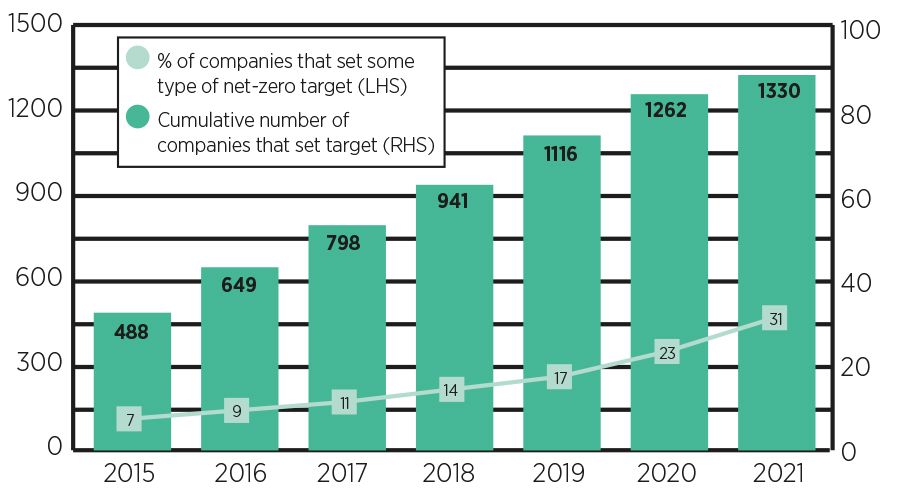Listed companies are doing little to prevent the effects of global warming with just 11% aligned with a 1.5°C temperature rise, MSCI has found.
The latest quarterly Net-Zero Tracker research from MSCI said all listed companies must each reduce their total carbon intensity by 8-10% every year until 2050 if the 1.5°C target is to be met.
Instead, they are on track to put nearly 10.8 billion tons (gigatons) of direct Scope 1 greenhouse gas emissions into the atmosphere this year, up approximately 0.7% from last year. However, this is 5.6% lower than the pre-pandemic high, according to MSCI.
MSCI found an increase in the number of companies setting net-zero targets, but urged groups that do not have these in place to do so urgently as it found only 39% of companies reduced emission intensity by 8-10% between 2019 and 2020.
Sylvain Vanston, executive director of Climate Change Investment Research at MSCI, commented: “The latest Net-Zero Tracker reinforces the magnitude of the challenge in preventing the worst effects of a warming planet. While we acknowledge more listed companies are taking climate responsibilities seriously, the amount of action is still insufficient.
“The importance of decarbonisation targets should not be underestimated. Setting a net-zero target does not guarantee a company will achieve it, but without one a company is not accountable.
“While there is a steady rise in companies setting these targets, only 45% of 2,900 companies in the MSCI ACWI Index have done so, and this needs to accelerate urgently if the world is to align with 1.5°C.”
Companies setting decarbonisation and net-zero targets

MSCI also used its Implied Temperature Rise tool to analyse companies and found that less than half (46%) of listed companies align with a 2°C temperature rise, putting them at the high end of the Paris Agreement goal.
Significantly less – 11% – align with a 1.5°C temperature, although this figure is a slight increase from 10% of companies in the October edition of the Net-Zero Tracker.
Public companies are also on a trajectory to cause global temperatures to rise by 2.9°C. Although this is lower than the 3°C scenario reported in October 2021, it is still way off from where companies need to be in terms of carbon reduction.
“A planet that is 2.9°C warmer by 2100 is not just a more volatile world, it is a dislocated world,” Vanston commented.
“‘Disorderly transition’ scenarios are a euphemism for chaos. Every step by companies to cut their absolute emissions and every effort by policymakers to drive momentum is critical because every tenth of a degree matters.”







